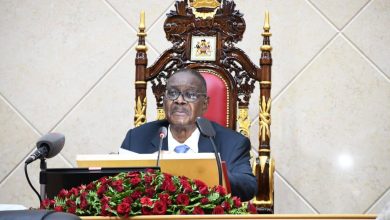We should take tourism to another level
From being rated as a low- hanging fruit with the potential to boost foreign exchange earnings to a game-changer, tourism has always had a special place in Malawi’s economy.
It has previously been touted as one sector with the potential to complement the contribution of tobacco, the country’s main export crop.
This time around, tourism together with agriculture and mining plus manufacturing are at the heart of the Malawi Government’s ATM+M strategy to stimulate economic recovery and growth. It is also prioritised in the Malawi 2063 (MW2063), the country’s long-term development strategy for its contribution to socio-economic development, job creation and poverty reduction.
The month of September is dedicated to tourism, declared as the National Tourism Month to raise awareness ahead of the World Tourism Day on September 27th.
For 2025, the National Tourism Month is being celebrated under the theme ‘Tourism and sustainable transformation’ to highlight Malawi’s natural beauty, culture and hospitality while encouraging both domestic and international visitors.
That Malawi is endowed with naturally beautiful places has never been in dispute. The missing link has been creation of enablers that should drive traffic to such destinations.
In a public lecture titled ‘Solidifying the gains: Everything. Everyone’ delivered in partnership with Mzuzu University earlier this year, Minister of Tourism Vera Kamtukule, PhD, mentioned failure to coordinate marketing of tourism as the biggest challenge stifling the growth of the industry in Malawi.
During the 2025 Malawi International Tourism Expo in April stakeholders in the tourism industry also urged the Ministry of Tourism to exploit technology and target global tourism power houses to amplify the initiative to achieve its marketing objective.
Identifying influential players in global tourism and targeting them every year is one strategy some industry players believe can help to increase the tourist arrivals in the country.
Ernie Lindsey, an American novelist whose novel Sara’s Game became a USA Today and Amazon Kindle bestseller, is credited with the quotation “numbers don’t lie, people do”. I reflected on this upon seeing World Tourism Council data that showed revenues from tourism for Malawi and her neighbours in 2023 from international tourist visits. The gap between us and our neighbours is so wide. Zimbabwe reaped $215.1 million (an equivalent of K377 billion), Zambia generated a staggering $901 million (about K1.6 trillion) and Mozambique raked in $327 million (about K573 billion) while Malawi had a paltry $35.5 million (about K62 billion). But by 2028, Malawi’s tourism earnings are projected to rise to around $268 million.
In 2024, Malawi was projected to earn $42.9 million (about K75 billion), a 20.7 percent jump. Not sure though how much of the earnings practically trickle into the Malawi economy as some players undertake all payment transactions abroad in facilitating tourist deals. This is one area worth looking into.
Every time I see our country trailing in such matters one question that bothers me is why do we fail to attract more tourists and compete with regional neighbours such as Zambia, Tanzania, Mozambique, South Africa, Zimbabwe and others?
Malawi needs $600 million (about K942.6 billion) annually to bring in fuel, but generates just around $1 billion (K1.75 trillion) in forex every year against an annual import bill of $3 billion (about K5.2 trillion).
Tobacco, the main contributor in the foreign exchange basket, contributed $395 million (K691 billion) while in 2023 it was $282 million (about K493.7 billion) and this year it has hit $517 million (about K905 billion) for the first time since 2003.
Besides some regulatory shortfalls prior to the passing of the Tourism Act 2025 that replaced the outdated 1968 Tourism and Hotels Act to provide a modern framework for the sector’s development and regulation, lack of supporting infrastructure has been one glaring disappointment. As I write, the road network to tourism destinations such as Nyika National Park, Lake Malawi and others is not in good shape. Three or so weeks ago, driving between Machinga Boma and Liwonde, then Mangochi-Monkey Bay and later connecting to Golomoti, the condition of the roads made me conclude that a self-driving tourist would make a U-turn thinking they are lost. Battered is an under-statement to describe the condition of the cited roads. They simply don’t fit to be called roads. Period!
Initiatives, including the lifting of visa requirements for visitors from 70 countries that include the UK, China, Russia and Southern African Development Community as well as Common Market for Eastern and Southern Africa States are encouraging. But more still need to be done.
Figures show that global tourist travels are growing after being hit hard by Covid-19 between 2020 and 2022.
The fresh water Lake Malawi is one huge advantage if it can be backed with some infrastructure development, especially access roads, airports and attractive tourism products that can be well packaged.
I will conclude with one of the Facebook posts Zimbabwean billionaire businessperson and philanthropist Strive Masiyiwa shared a couple of years ago on the untapped potential that is Lake Malawi.
He wrote: “Reflection: Many years ago, I was at a business conference in Germany, when I found myself speaking casually to one of the most brilliant industrialists of his generation, Juergen Schrempp, who ran Mercedes Benz.
“On realising that he had travelled in Africa, I asked him what was the most interesting [business] opportunity he had seen: ‘Lake Malawi’, he replied without hesitation, before adding: ‘What an amazing asset. They [Malawi] should be earning hundred billion [dollars I assume] a year from it already. It has nothing to do with any minerals.’ He said it with such passion, and then left. I was deeply troubled in my spirit, as I wondered what he had seen.”
As we celebrate the National Tourism Month, let us reflect on the challenges and propose solutions. Together we can exploit the potential tourism has and take it to another level.



